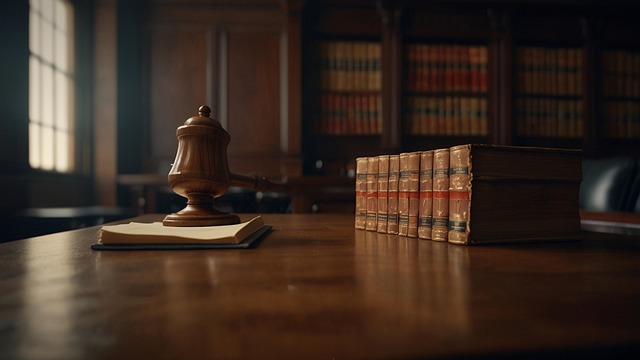In criminal justice, understanding jury biases is vital for fair trials, especially in financial crime cases. Financial evidence plays a dual role in investigations: uncovering motivations and tracking illicit activities while also influencing court processes. Media coverage can shape public perceptions and juries' views of accused individuals. To mitigate biases, legal strategies include thorough juror screening, transparent proceedings, diverse jury pools, clear explanations, and unbiased instructions. Case studies provide valuable tools for legal professionals to navigate complex financial crime scenarios and ensure justice, highlighting the continuous learning necessary in this dynamic field.
In the intricate dance between finance and crime, probing financial misdeeds is paramount for justice. This article delves into the multifaceted world of finance crime probes, exploring key components from the role of finance in criminal investigations to the impact of media influence on public perception. We uncover hidden biases within jury selection processes and present strategies for ensuring fair trials in financial crimes. Through case studies, we illuminate success stories and valuable lessons learned, offering a comprehensive guide to understanding jury biases in criminal cases.
- The Role of Finance in Criminal Investigations
- Uncovering Biases: A Complex Web in Jury Selection
- Impact of Media Influence on Public Perception
- Strategies to Ensure Fair Trials in Financial Crimes
- Case Studies: Success Stories and Lessons Learned
The Role of Finance in Criminal Investigations

In criminal investigations, finance plays a pivotal role, serving as both a tool for understanding the economic motivations behind crimes and a means to track and trace illicit transactions. Understanding the financial aspects of a case can help investigators uncover key evidence, expose hidden assets, and build stronger cases. This is particularly crucial in today’s world, where financial crimes like money laundering, fraud, and tax evasion have evolved into sophisticated, transnational operations. By examining bank statements, investment records, and digital wallets, law enforcement agencies can navigate complex financial networks, revealing the hidden trails left by criminals.
Moreover, the role of finance extends beyond evidence collection; it influences the very process of justice itself. Jury trials, for instance, are susceptible to understanding jury biases, where economic factors can inadvertently influence a juror’s decision. Corporate and individual clients alike may face financial crimes charges, requiring legal strategies that not only defend against allegations but also achieve extraordinary results in terms of mitigating potential economic impacts. Therefore, a comprehensive approach to criminal investigations must incorporate financial expertise, ensuring that justice is served with precision and integrity.
Uncovering Biases: A Complex Web in Jury Selection

Understanding Jury Biases in Criminal Cases is a complex and multifaceted challenge that lies at the heart of our justice system. While the process of jury selection aims to ensure impartiality, biases often creep in through subtle yet powerful mechanisms. These biases can stem from a multitude of factors, including racial, ethnic, socioeconomic, and even political leanings. For instance, studies have shown that certain demographic groups are more likely to be selected for juries, leading to potential disparities in outcomes for defendants, particularly those from marginalized communities.
Moreover, the influence of the media, public opinion, and societal stereotypes can significantly impact jury perceptions. This is especially true in high-profile cases where the sheer attention and pressure can sway even the most well-intentioned individuals. Navigating these complex dynamics requires a profound understanding not only within the legal community but also engagement with the philanthropic and political communities to promote reforms that safeguard against systemic biases. An unprecedented track record of successful crime probes hinges on recognizing and addressing these issues, ultimately ensuring fairness for all parties involved in the criminal justice process.
Impact of Media Influence on Public Perception

The media plays a significant role in shaping public perception about finance crime probes, often influencing how individuals understand and interpret complex legal matters. News coverage, especially highly sensationalized stories, can create a skewed view of reality, impacting the way juries perceive accused individuals and the crimes they’re alleged to have committed. This is particularly relevant in high-profile cases involving white collar and economic crimes, where the media’s narrative might oversimplify intricate financial schemes or overlook mitigating factors. As a result, the public may develop preconceived notions about guilt or innocence, potentially affecting the fairness of criminal proceedings.
Understanding jury biases in criminal cases is crucial, as it highlights the need for balanced and accurate media representation. By presenting both sides of the story and focusing on factual evidence, the media can help foster a more informed public. This, in turn, ensures that juries make decisions based on solid legal grounds rather than influenced by sensationalist reports. Moreover, recognizing the power of media influence encourages those under investigation for general criminal defense charges to seek legal counsel promptly, aiming to avoid indictment by proactively addressing potential biases and misperceptions.
Strategies to Ensure Fair Trials in Financial Crimes

Ensuring fair trials in financial crimes is paramount to maintaining justice and public trust. One significant challenge lies in understanding and mitigating jury biases that could skew outcomes. Research shows that individuals, including jurors, often unconsciously harbor prejudices based on economic status, racial or ethnic backgrounds, and other societal factors. These biases can lead to unfair judgments, especially in complex financial cases where technical jargon and intricate legal concepts are involved. To combat this, courts and legal professionals must employ strategies that promote transparency and impartiality. This includes thorough juror screening processes that delve into potential biases and ensure a diverse jury pool, thereby reducing the influence of preconceived notions.
Additionally, providing clear and accessible explanations of financial evidence and legal arguments can help jurors comprehend the intricacies of these cases better. An unprecedented track record of successful prosecutions across the country has demonstrated that when jury instructions are comprehensive and unbiased, it leads to more consistent outcomes. By addressing potential biases and implementing inclusive practices, the criminal justice system can strive for a complete dismissal of all charges, not just in individual cases but as a sustainable approach to upholding fairness in financial crime probes.
Case Studies: Success Stories and Lessons Learned

In the realm of finance crime probes, case studies serve as powerful tools for understanding both success stories and lessons learned. By examining real-life scenarios, legal professionals can uncover insights that prove invaluable in navigating complex criminal cases involving high-stakes financial crimes. These studies highlight effective strategies employed by seasoned general criminal defense attorneys to counter intricate accusations, often revealing subtle yet significant aspects of jury dynamics.
For instance, understanding jury biases is crucial in these high-profile cases. Jurors’ preconceptions and prejudices can significantly influence their decisions, so recognizing and addressing these biases becomes essential for a successful defense. Case studies demonstrate how successful legal teams utilize evidence and arguments tailored to counteract such biases, ensuring fair trials for their clients. This strategic approach not only showcases the art of advocacy but also underscores the importance of continuous learning in an ever-evolving legal landscape.
In conclusion, navigating finance crime probes requires a multifaceted approach. By understanding the role of finance in criminal investigations, uncovering biases within jury selection processes, and mitigating media influence on public perception, we can significantly enhance fair trial strategies. The case studies presented offer valuable insights into successful outcomes and lessons learned, guiding future efforts to ensure justice in financial crimes. Recognizing and addressing jury biases is crucial for maintaining the integrity of our legal systems, ensuring that every defendant receives a thorough and impartial assessment.






